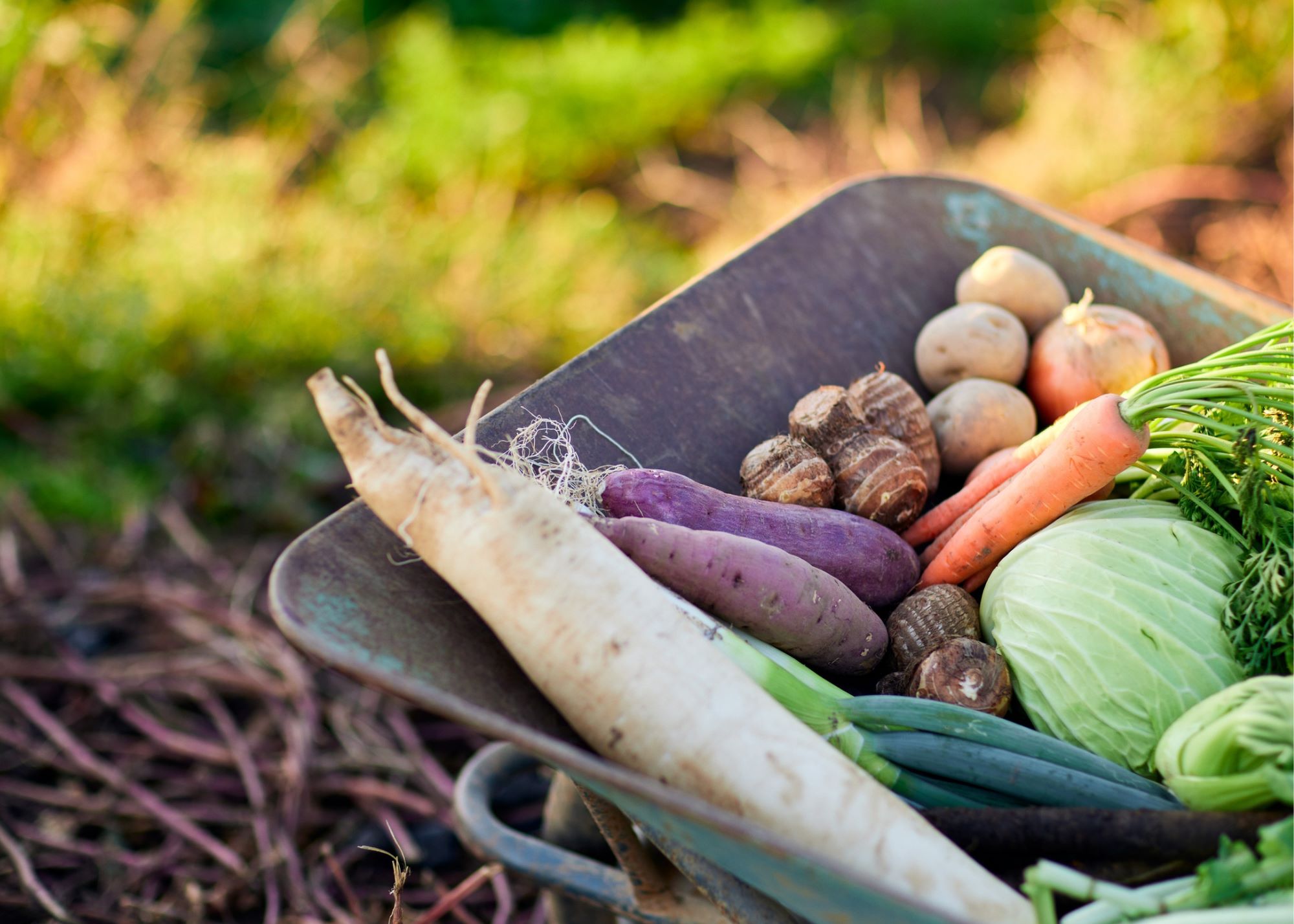November brings with it a kaleidoscope of autumn colors, from the fiery reds of maple leaves to the vibrant oranges of pumpkins, all set against the backdrop of clear, crisp blue skies. It's a time when we gather with loved ones, wrapped in cozy sweaters, to share hearty meals and express thanks for the nourishing food on our tables. Yet, in the midst of this seasonal abundance, we're reminded that not everyone has equal access to fresh and healthy food. Food justice, a concept encompassing issues of equity and fairness in food distribution, becomes particularly poignant during this season. In this November blog post, we'll explore the powerful intersection of food justice and school gardens, where young minds bloom alongside the fruits and vegetables they cultivate, sowing seeds of equity and sustainability for a brighter future.
The School Garden Revolution

The school garden movement, which began as a grassroots initiative, has evolved into a nationwide phenomenon, with thousands of schools across the country now incorporating gardens into their curricula. They have become thriving hubs of education and empowerment. Schools, like many of the ones partaking in Green Our Planet’s GardenConnect and HydroConnect programs, have witnessed incredible transformations as their gardens have flourished, with students not only learning experientially about biology, ecology, and sustainability, but also developing a deeper connection to nature and the environment. Beyond that, these living classrooms also hold the potential to address profound issues of food justice.
Food Justice Rooted in Education:
School gardens serve as powerful educational tools, instilling in students a deep understanding of where their food comes from. As children plant seeds, watch them grow, and harvest the produce, they develop a true appreciation for fresh, healthy food. This knowledge goes beyond the classroom; it empowers students to become informed consumers who make healthier food choices and advocates for more equitable food systems. When students grasp the intricacies of food production and the environmental impact of their choices, they are better equipped to contribute to a more sustainable and just food future.
A Harvest of Empowerment
Food justice extends beyond knowledge—it's about equitable access to nutritious food. School gardens can help bridge the gap. Many of the schools partaking in our GardenConnect and HydroConnect programs have successfully integrated the produce from their gardens into their school meal programs. This not only enhances the nutritional quality of school lunches but also exposes students to the importance of nourishing their bodies with fresh, local, and sustainably grown food. Moreover, surplus garden produce is often shared with local communities, becoming a source of nourishment for those who need it most. In this way, school gardens empower students to be part of the solution, actively contributing to their communities' well-being.
Building Stronger Communities
School gardens are not just spaces for students; they are also hubs for involving parents, teachers, and community members. At the heart of this collaboration lies a shared responsibility, where diverse voices come together to nurture the garden and, by extension, the neighborhood. In Green Our Planet schools across the nation, volunteers from their respective communities regularly come together to support the garden's growth, organize events, and create a sense of unity. This spirit of community strengthens the fabric of society, reinforcing the principles of food justice and sustainability.
The November Connection
November's harvest season is a perfect time to spotlight the role of school gardens in promoting food justice. It's a month when many outdoor gardens yield their final treasures, when students gather to pick pumpkins, gather apples, and harvest the last of the autumn greens. These activities teach students valuable lessons about seasonality, food preservation, and the importance of sharing abundance.

Taking Action
As we revel in the beauty of fall foliage and the rich flavors of autumn, let's remember that November is more than just a season of gratitude—it's an opportunity to sow the seeds of change. Support your local school garden initiatives, donate surplus produce to food banks, and engage in conversations about food justice within your community. Together, we can transform November's harvest into a symbol of hope, where every child has the chance to enjoy the fruits of equity and justice.
In the spirit of November, let's nurture both our gardens and our commitment to food justice, creating a world where access to healthy, delicious food is a shared reality for all.
Ready to learn more about our school garden programs? Come to our 20-minute FREE Webinar!
.png)



